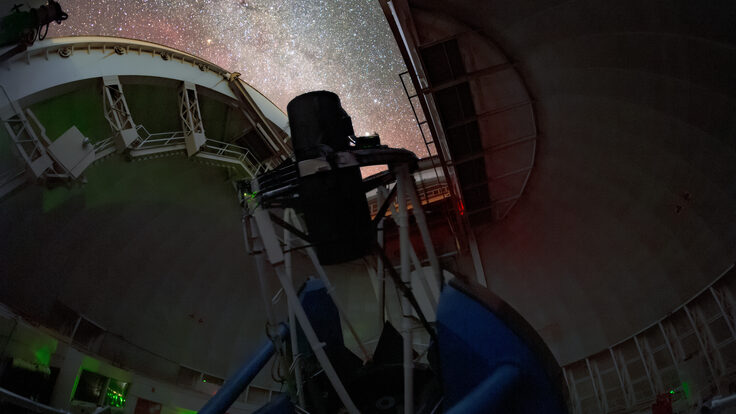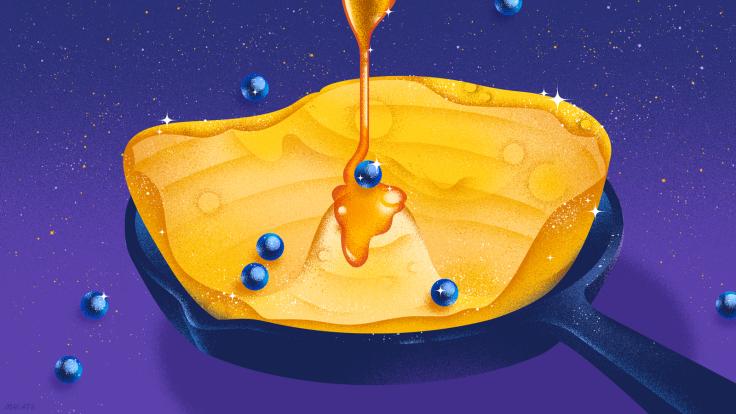Science doesn’t happen in a bubble, but sometimes new scientific knowledge seems to remain in one. International science communications competition FameLab is working to burst that bubble for the benefit of the public.
CERN hosted the Swiss semi-finals for FameLab, run jointly by the Cheltenham Festivals and the British Council, in Geneva on Saturday, Feb. 4. Of the 21 researchers and students who braved the frigid weather to take a turn sharing their knowledge on stage, five will advance to the national finals in Zurich at the end of March. Twenty-two countries are hosting regional competitions this year to select a representative for the ultimate showdown. The televised finals will take place this summer in Cheltenham.
To compete, entrants from scientific backgrounds must explain a complex topic to a panel of judges and a live audience in three minutes or less.
“Now I’ll know how to explain my research to my parents,” said entrant and University of Geneva immunology postdoc Susan Johnson.
As well as awarding prizes and bestowing glory, FameLab is also designed as a workshop event to help train the next generation of science communicators.
Before the first set of auditions last Saturday, the participants went through blitz training sessions with experienced communicators and FameLab aficionados. They practiced their speeches in front of cameras while two communicators from CERN offered critique. They also did body and intonation exercises with a nonverbal communications specialist from Geneva, Branca Zei. Finally, two previous national winners, Tom Whyntie from the U.K. and Venelin Kozhuharov from Bulgaria, were available throughout the day to lend insights and encouragement to all.
Sharing one’s work is a responsibility, said Diana Marek, a geneticist from nearby Lausanne; researchers must give something back to the taxpayers who fund them. She enjoys the task, she said. “I find it very rewarding to see in the eyes of people that they got something out of what you said.”
FameLab’s judging criteria are based on “the three C’s”: content, clarity and charisma. Speakers may use a limited number of props but no PowerPoint or other electronic presentation tools. Immediately after each audition, the four judges commented aloud about what did and didn’t work.
“We were skeptical about giving feedback right after, but actually it worked quite well,” said judge Muriel Brouet of the Geneva Tribune. Another judge, Didier Raboud of the University of Geneva communications department, said the speakers clearly learned a lot in the course of the day. Indeed, in closing comments all the judges noted a marked improvement between the morning and afternoon performances.
The participants also remarked on the instruction’s benefits. “I think everyone should do this -- especially professors,” said cosmologist Christian Byrnes, whose audition explained Olber’s paradox about why the night sky is dark. CERN physicist and event judge John Ellis said he would steal Byrnes’ idea in the future when explaining the same concept to the public.
“I got so many great ideas from everyone,” said another participant, Philippe Kobel. “It’s inspiring and gives you the enthusiasm to keep on trying.”
Along with the five finalists to compete in the Zurich nationals -- which will be preceded by a weekend-long communications workshop free of charge -- the panel chose one grand winner of the semi-finals for that day. Physicist Boris Lemmer, of the ATLAS experiment, took the iPad prize after his talk tilted “There is a particle physicist in every one of us.”
In it, he made an analogy between the way LHC detectors select interesting events and the way someone might search for a girlfriend in downtown Geneva. As Ellis noted on behalf of the judges, the thing that tipped the jury was “the way he talked about particle physics in the language of every day life.”
Lemmer said he was ecstatic to have won, but he had a thoughtful take on his experience at the end of the day. The best part, he said, was meeting and learning from the other scientists who attended. “All these people want to talk about their science,” he said, “And that’s the way it should be.”
Watch a video of the afternoon session, including all ten finalist presentations: http://cdsweb.cern.ch/record/1421673








